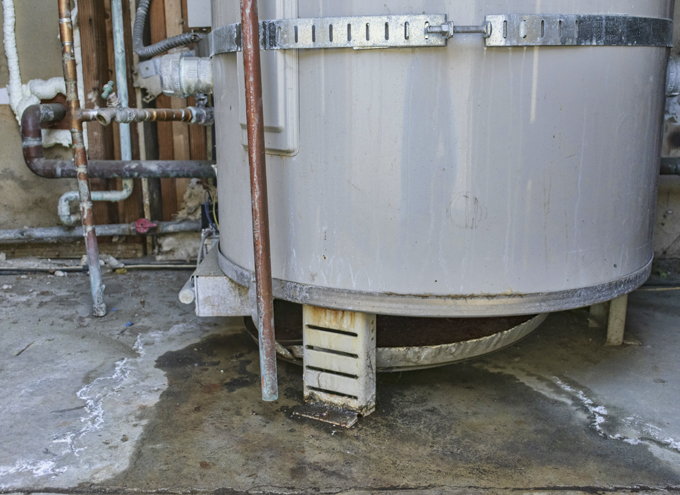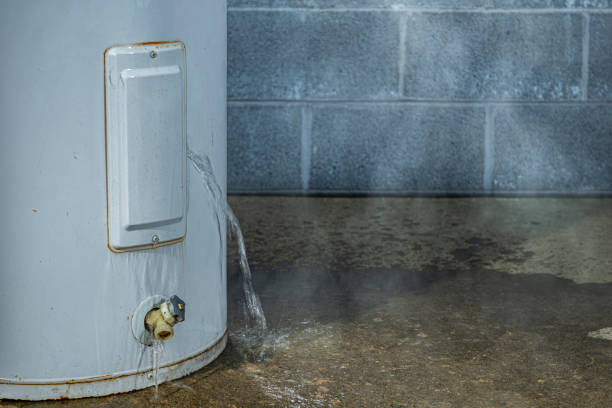Crucial Guidelines for Residential Property Owners Facing Issues with Broken Hot Water Systems
Crucial Guidelines for Residential Property Owners Facing Issues with Broken Hot Water Systems
Blog Article
This article following next pertaining to Broken Water Heaters is totally captivating. You should read it.

Whether it is located in the basement or a different area, broken hot water heater can create tension. A standard unit holds 80 gallons, so an overnight leak will lead to a flooding. This causes major residential or commercial property damages with soaked walls as well as floors. Besides, having no warm water supply is additionally frustrating. If you are handling these issues, keep in mind of the following:
Call the Plumber
After doing the initial 2 safety and security actions, you need to call your plumber to come right away to take care of a burst water heater. Nevertheless, remember that your device will not just conk out substantially overnight. There are normally indications that your aging water heater has debris build-up in the interior. Make note of the following:
Do not wait on significant flooding to call the plumber. By then, you will need to spend even more to restore your building. Instead, as quickly as you detect these indications, have a specialist pertained to inspect your hot water heater tank. Typically, hot water heater have a lifespan of concerning 8 to 12 years. With normal evaluation as well as upkeep, you can extend its life.
Cut Off the Cold Water Supply
Cut off the storage tanks tap water supply from the source. When your tank is in good problem, the cool water stops filling up when the tank is full. If you can not find it or reach it, you have to transform off that primary water supply line outside your building.
Shut Down Power Source
Before calling the plumber, shut down a gas hot water heater by turning the temperature dial. This is usually situated on top of the thermostat. If you have a model that works on electric power, turn off the circuit breaker. This will protect against electrocution, particularly if there is a leakage as water is a conductor. Usually, the burner turns off when the water strikes a specific temperature. With a damaged storage tank, it may malfunction. Cutting it off ensures you remain secure.
Tidy up Property
After calling the plumber, record damage by taking notes and also photos so you can assert your property owner's insurance policy. Remove any type of standing water to protect against mold as well as mold growth. If you have a completely submersible water pump, make use of that to drain pipes the water.
Remember, if you discover any type of concerns with your hot water heater, call the pros right now. You can not take this issue lightly since a malfunctioning thermostat can increase water temp to an alarmingly high level, resulting in accidental burns. A broken heating system stress safety valve can additionally trigger an explosion. For best outcomes, obtain a yearly check so your device obtains checked, cleaned up, drained, as well as re-filled, assuring optimal performance.
After doing the very first 2 security steps, you have to call your plumber to come right away to repair a fractured water heating unit. Rather, as soon as you detect these indicators, have an expert come to examine your water heating unit tank. Before calling the plumber, closed off a gas water heating unit by turning the temperature level dial. If you have a submersible water pump, utilize that to drain the water. Bear in mind, if you observe any issues with your water heating unit, call the pros right away.
8 REASONS YOUR HOT WATER HEATER IS NOT WORKING & HOW TO FIX
Water Heater Problems & Solutions
Loose or Damaged In-Line Valve
Unlike a water leak near the bottom of your water tank, a water leak on top of your system can be easily fixed. A common cause of water tank leaks includes a loose in-line valve. This is a handle that is located at the top of the water tank that is engineered to activate or deactivate the flow of water. To fix this problem, you will need to secure the nut that holds the ball or in-line valve in its location. If the leak becomes more severe once it is tightened, you will be required to travel to your local hardware store to purchase a new in-line valve for your water heater.
Damaged Pressure Relief Valve
Most types of water heaters are equipped with a pressure relief valve that is engineered to discharge pressure from the water tank when it becomes too high. If this valve on top of your water heater begins to leak, we recommend purchasing a new one online or from your local store. The process of removing and replacing pressure relief valves is not complicated.
No Warm Water
If you have an electric water heater in your home, the most typical cause of a lack of warm water is a broken heating element. Your water heater is equipped with two heating elements that are tasked with heating incoming water in the water tank. Once a heating element begins to malfunction, you will have little to no hot water to use for showering, cleaning, and laundry.
Low Supply of Hot Water
Are you continuously running out of warm water? This issue may be a byproduct of a cracked dip tube. This tube is engineered to push cold water to the base of your water tank to be heated. Once a crack or hole begins to form in the dip tube, the incoming supply of cold water may be released near the top or middle of your tank. As a result, the cold water on top of the tank will be sent to the faucets and showers in your house. This hot water heater problem can only be fixed by replacing the dip tube on your system. Since the process of installing a new dip tube is complex, we recommend calling a certified technician for help.
A low supply of warm water may also be a signal of excess sediment buildup in your water tank. As your water heater reaches the middle of its life cycle, minerals in water including magnesium and calcium will begin to collect at the base of the water tank. As the minerals continue to grow, there will be less room in the water tank to store hot water. To resolve this problem, flush your water heater to remove the excess minerals.
Water is Too Warm or Cold
If the water in your shower feels uncomfortable hot or cold, you can adjust the temperature of your water by changing the settings on your thermostat. Setting the temperature to 120 degrees Fahrenheit may help you save money on your utility bills. This is an excellent temperature to use if you’re worried about scalding or skin irritation. Does this temperature feel too cold? You may also adjust the thermostat to 140 degrees Fahrenheit to make your showers more pleasant. If your hot water heater is not working when you change the temperature, this is an indicator of a broken thermostat. Immediately find a certified plumbing or heating contractor in your area to repair or replace your thermostat.
Low Water Pressure
Low water pressure is not always caused by a malfunctioning water heater. If you live in an older home with smaller water pipes, the flow of water will be restricted prior to reaching our kitchen or bathroom skins. The only way to eliminate this hot water heater problem is to connect new ¾-inch water lines to your system. Another type of problem that may negatively impact your water pressure includes calcium deposits in water pipes.
As magnesium and calcium begin to form in your pipes, the diameter of your water lines will become smaller. As a result, the warm water from your water heater will not be able to travel in an efficient manner to your sinks or appliances. Since the process of replacing water pipes includes removing drywall, an average homeowner that does not have a plumbing license will not be able to fix this hot water heater problem.
https://www.wmhendersoninc.com/blog/8-reasons-your-water-heater-is-not-working-how-to-fix/

I hope you enjoyed reading our piece on What Do You Do When Your Water Heater Bursts?. Thanks a lot for taking a few minutes to read our blog post. Do you know another person who is excited about Water Heater Burst? Be sure share it. Thanks a lot for your time invested reading it.
We're alert, ring! Report this page